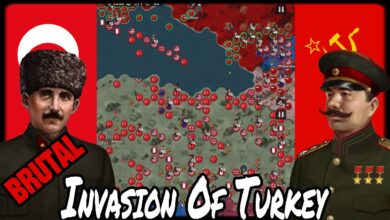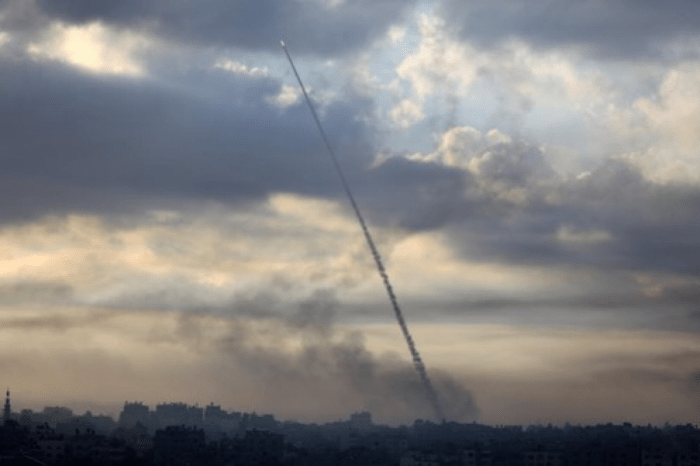
Israel Strikes Southern Lebanon Amid Rising Tensions
Israel launches strikes on southern Lebanon as tensions spike, marking a dangerous escalation in the ongoing conflict between the two nations. This recent development has raised concerns about a potential full-blown war, with both sides seemingly locked in a cycle of violence and retaliation.
The strikes come after a series of incidents, including rocket fire from Lebanon into Israel, which Israel claims was orchestrated by Hezbollah, a powerful Lebanese Shia militia. These incidents have further inflamed tensions in the region, already fraught with political instability and a long history of conflict.
The current situation is particularly delicate, with the potential for a significant escalation of violence.
The Current Situation
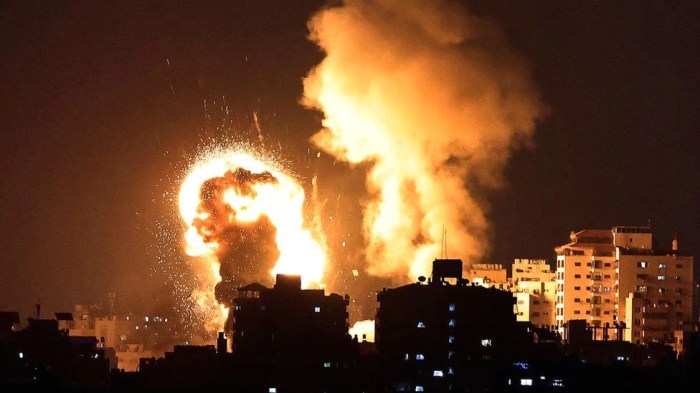
The recent escalation of tensions between Israel and Lebanon, culminating in Israeli airstrikes on southern Lebanon, is a stark reminder of the long-standing conflict between the two nations. The strikes, launched on August 1, 2023, followed a series of events that raised concerns about the potential for a wider conflict.The current situation is a complex one, shaped by a history of violence, political instability, and the presence of powerful regional actors.
It is crucial to understand the context of these events to grasp the intricacies of the current crisis.
The Events Leading to the Strikes
The immediate trigger for the Israeli airstrikes was a series of rocket attacks launched from southern Lebanon towards Israel on July 31, 2023. The rockets, fired by a group claiming affiliation with Hezbollah, a Lebanese Shi’a political and paramilitary organization, landed in open areas in northern Israel, causing no casualties or significant damage.
However, the attacks prompted a strong response from Israel, which viewed them as a direct threat to its security.Israel accused Hezbollah of being behind the rocket attacks, claiming that the group was attempting to escalate tensions and provoke a military response.
Hezbollah, while not explicitly claiming responsibility, has historically used rocket attacks as a means of retaliating against Israeli actions in Lebanon or against its allies in the region. The rocket attacks followed a period of heightened tensions along the Israeli-Lebanese border.
In June 2023, Israel carried out airstrikes against targets in Syria, reportedly linked to Hezbollah. These strikes were in response to a series of incidents, including rocket fire from Syria towards Israel and the alleged transfer of weapons from Iran to Hezbollah.
The Political and Military Tensions
The current tensions between Israel and Lebanon are rooted in a long history of conflict and mistrust. The two nations have fought several wars since Israel’s independence in 1948, including the 1967 Six-Day War, the 1973 Yom Kippur War, and the 2006 Lebanon War.
The last major conflict, the 2006 Lebanon War, lasted for 34 days and resulted in a significant number of casualties on both sides. The conflict is further complicated by the presence of Hezbollah, which has a significant political and military presence in Lebanon.
Hezbollah is backed by Iran and has a long history of engaging in armed conflict with Israel. The group has been accused of orchestrating attacks against Israeli targets and of smuggling weapons into Lebanon from Iran.
The History of Conflict
The conflict between Israel and Lebanon has its roots in the establishment of the State of Israel in 1948. Following the creation of Israel, the first Arab-Israeli War broke out, resulting in the displacement of a large number of Palestinians and the occupation of the West Bank and Gaza Strip by Israel.The 1967 Six-Day War further escalated tensions, with Israel seizing control of the Golan Heights from Syria and the Sinai Peninsula from Egypt.
The 1973 Yom Kippur War, launched by Egypt and Syria, resulted in a stalemate but led to the establishment of a UN peacekeeping force in the Sinai Peninsula.The Lebanese Civil War (1975-1990) further complicated the situation, with various factions fighting for control of the country.
Israel’s recent airstrikes on southern Lebanon, amidst escalating tensions, highlight the crucial role of public relations in modern warfare. The way a conflict is portrayed to the world can heavily influence public opinion and international support, which is why it’s no surprise that the phrase “war needs good public relations” has become increasingly relevant.
The current situation in Lebanon is a stark reminder of the complex interplay between military action and the narrative surrounding it.
Israel intervened in the conflict on several occasions, supporting Christian militias and carrying out airstrikes against Palestinian and Syrian forces.The Israeli withdrawal from Lebanon in 2000, following a 22-year occupation, did not bring an end to the conflict. Hezbollah, which had gained significant influence during the civil war, continued to operate in southern Lebanon and launch attacks against Israel.
The news of Israel launching strikes on southern Lebanon is a stark reminder of the fragile peace in the region. It’s hard to imagine a situation where a beautiful seaside town like the iconic seaside town with no go zones and locals scared to go out at night is overshadowed by fear and uncertainty.
This latest escalation raises serious concerns about the potential for further conflict and the impact it will have on the lives of innocent civilians.
The 2006 Lebanon War, sparked by a Hezbollah attack on Israeli soldiers, further deepened the divide between the two nations.
Israel’s Response: Israel Launches Strikes On Southern Lebanon As Tensions Spike
Israel’s decision to launch strikes on southern Lebanon was a direct response to escalating tensions along the border. The strikes were aimed at deterring further attacks from Hezbollah, the Lebanese Shiite militant group, and to demonstrate Israel’s commitment to protecting its citizens.
Targets of the Strikes
The strikes targeted Hezbollah infrastructure and military facilities in southern Lebanon. These facilities are believed to be used for storing weapons, training fighters, and launching attacks against Israel.
- One of the primary targets was a Hezbollah weapons depot located near the town of Tyre. This depot is believed to have contained a significant amount of rockets and other weapons that could be used to attack Israel.
- Another target was a Hezbollah training camp located near the village of Bint Jbeil. This camp is believed to have been used to train Hezbollah fighters in the use of rockets and other weapons.
The significance of these strikes lies in their potential to weaken Hezbollah’s military capabilities and deter future attacks against Israel. By targeting these facilities, Israel aims to disrupt Hezbollah’s operations and prevent them from acquiring the resources necessary to carry out attacks.
Potential Consequences
The strikes have the potential to escalate tensions in the region. Hezbollah has vowed to retaliate for the attacks, and there is a risk that the situation could spiral out of control.
The escalating tensions in the Middle East, marked by Israel’s strikes on southern Lebanon, highlight the fragility of peace in the region. While the world watches this unfolding conflict, a different kind of struggle for stability is playing out in Sri Lanka, as the country prepares to vote in a presidential election.
Sri Lanka is yearning to turn a page as country votes in presidential election , hoping to usher in an era of economic recovery and political unity. These events, though geographically distanced, share a common thread – the yearning for peace and a better future.
- A full-scale war between Israel and Hezbollah could erupt, with devastating consequences for both countries and the wider region. This scenario is particularly concerning given the proximity of the conflict to Israel’s northern border and the presence of a large Palestinian refugee population in Lebanon.
- The strikes could also lead to a wider regional conflict, involving other countries in the Middle East. For example, Iran, which supports Hezbollah, could be drawn into the conflict, leading to a wider regional war.
The strikes also have the potential to further destabilize Lebanon, which is already facing a severe economic and political crisis. The strikes could lead to an increase in violence and instability within Lebanon, further undermining the country’s fragile peace.
Lebanon’s Reaction
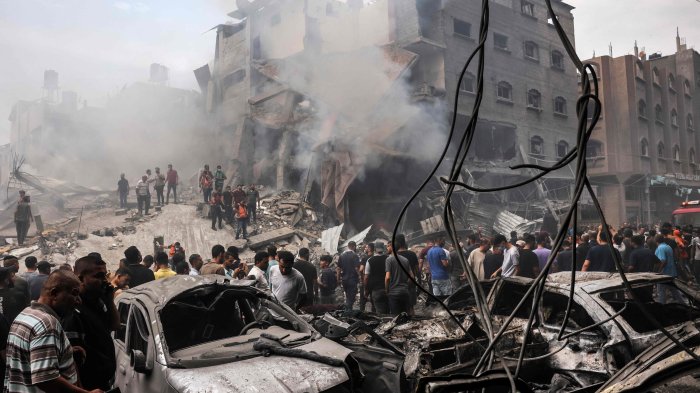
Lebanon has condemned the Israeli airstrikes, calling them a “flagrant violation of Lebanese sovereignty” and a “dangerous escalation.” The Lebanese government has summoned the Israeli ambassador to protest the strikes.
Impact on Lebanese Population and Infrastructure, Israel launches strikes on southern lebanon as tensions spike
The Israeli strikes have had a significant impact on the Lebanese population and infrastructure. The strikes have caused damage to buildings, roads, and other infrastructure, and have displaced residents. The strikes have also caused widespread fear and anxiety among the Lebanese population.
Potential for Escalation or De-escalation
The Israeli strikes have increased tensions between Israel and Lebanon, and there is a risk of further escalation. However, there are also efforts to de-escalate the situation. The United Nations has called for restraint from both sides, and the Lebanese government has called for a peaceful resolution to the crisis.
International Reactions
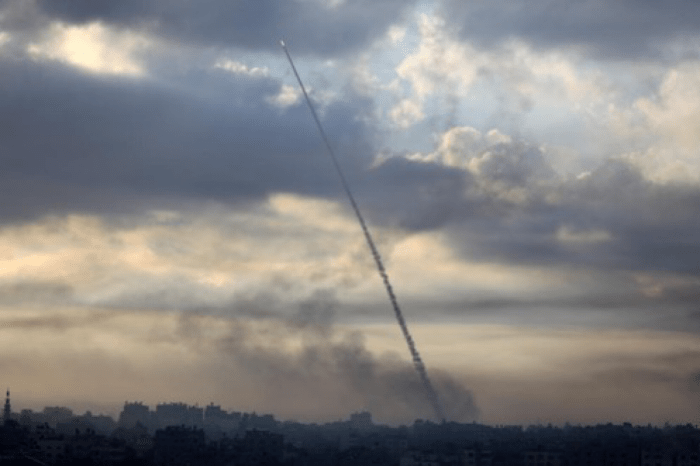
The Israeli strikes on southern Lebanon have drawn widespread international condemnation and calls for de-escalation. Key international players, including the United Nations, the United States, and regional powers, have expressed their concerns and urged restraint.
United Nations
The United Nations Security Council has called for an immediate cessation of hostilities and stressed the importance of maintaining the ceasefire agreement between Israel and Hezbollah. The UN Secretary-General has also expressed deep concern over the escalation of violence and called for a return to dialogue.
United States
The United States has expressed its support for Israel’s right to defend itself against attacks from Hezbollah. However, the US has also urged both sides to exercise restraint and avoid further escalation. The US has called for a de-escalation of the situation and a return to the ceasefire agreement.
Regional Powers
Regional powers have also voiced their concerns over the escalating tensions. Egypt and Jordan have called for calm and restraint, while Saudi Arabia has condemned the attacks by Hezbollah and expressed solidarity with Israel.
Potential for International Intervention or Mediation
The international community has expressed its willingness to mediate between Israel and Hezbollah. However, the potential for international intervention is limited, as both sides have shown a reluctance to accept outside involvement in their conflict.
Implications for Regional Stability
The Israeli strikes on southern Lebanon have raised concerns about the potential for a wider conflict in the region. The escalation of tensions between Israel and Hezbollah could lead to a destabilization of the fragile peace in the Middle East.
Potential Implications
The recent escalation of tensions between Israel and Lebanon, marked by Israeli airstrikes on southern Lebanon, raises serious concerns about the potential for a wider conflict. This situation carries significant implications for the political landscape in both countries and could have long-lasting consequences for the entire region.
The Risk of a Wider Conflict
The current situation presents a real possibility of a wider escalation of the conflict, potentially leading to a full-scale war. The history of the Israeli-Lebanese conflict is marked by repeated cycles of violence, and the current situation has the potential to trigger another such cycle.
- The Israeli airstrikes, while aimed at targets linked to Hezbollah, could easily provoke a retaliatory response from the Lebanese group. This could lead to a spiral of violence, with both sides escalating their actions.
- The presence of a large number of Hezbollah fighters in southern Lebanon, as well as their advanced weaponry, makes it difficult to contain any conflict within Lebanon’s borders. A conflict could easily spill over into neighboring countries, particularly Syria, where Hezbollah is heavily involved in the ongoing civil war.
- The involvement of regional powers, such as Iran, which supports Hezbollah, could further complicate the situation. Iran’s involvement could lead to a wider regional conflict, with the potential for involvement by other regional powers, such as Saudi Arabia.
Impact on the Political Landscape
The current escalation is likely to have significant implications for the political landscape in both Israel and Lebanon.
- In Israel, the strikes are likely to strengthen the position of Prime Minister Benjamin Netanyahu, who has long been seen as a strong leader on security issues. The strikes could also lead to increased political polarization within Israel, with hawkish elements calling for a more aggressive response to Hezbollah.
- In Lebanon, the strikes could further destabilize the already fragile political system. The Lebanese government is deeply divided, and the strikes are likely to exacerbate tensions between the different political factions. The strikes could also lead to increased support for Hezbollah, which is seen by many Lebanese as a defender of the country’s interests.
Long-Term Consequences for the Region
The current situation could have long-term consequences for the region.
- The strikes could lead to a further deterioration of the already tense security situation in the region. This could make it more difficult to achieve a lasting peace between Israel and its Arab neighbors.
- The strikes could also further isolate Lebanon, which is already struggling with a severe economic crisis. This could make it more difficult for Lebanon to attract foreign investment and rebuild its economy.
- The strikes could also have a negative impact on the already fragile peace process between Israel and the Palestinians. The current situation could lead to a resurgence of violence in the West Bank and Gaza Strip.





